Khader Adnan's custodial murder by Israeli regime sets dangerous precedent
By Robert Inlakesh
In the wee hours of Tuesday morning, occupied West Bank Palestinian resistance leader and hunger striker Khader Adnan was murdered through starvation and deliberate neglect in the Zionist military detention.
Adnan breathed his last after 86 days of hunger strike, choosing death with dignity over life with humiliation, like a true revolutionary and a spirited resistance leader.
His custodial murder was described as an "assassination" and "cold-blooded execution" by the Palestinian resistance factions and the Palestinian Prisoners Society organization. It triggered armed confrontations between Gaza-based resistance groups and the Israeli occupation army.
Forty-five year old Khader Adnan was left to perish in his military prison cell at Nitzan detention facility, denied medical care despite failing health.
Hailing from Arrabeh, Jenin, Adnan was a father of nine and rose to prominence within the Palestinian Islamic Jihad (PIJ) movement during the late 1990s, becoming the resistance group's West Bank spokesperson.
Adnan studied mathematics at Birzeit University but later decided to open up a bakery after struggling to find a job in the occupied West Bank, according to people who knew him closely.
Imprisoned dozen times
Israeli occupation forces arrested and imprisoned him at least a dozen times over the course of around two decades, but never charged him with any responsibility for armed activities.
He was arrested and tortured by the Palestinian Authority (PA) security forces as well, who on Tuesday assaulted Palestinians in the West Bank city of Jenin who had gathered to mourn his tragic passing.
Charlotte Kates, the coordinator of Samidoun Palestinian Prisoner Solidarity Network, speaking to the Press TV website said the Israeli jail authorities are to be blamed for his custodial murder.
"It is clear that the Israeli occupation regime systematically refused to transfer Khader Adnan to a civilian hospital, refused to allow him to be released on bail, insisted on calling for new medical reports, even though his condition was extremely obvious," Kates said.
Adnan rose to the status of a national icon in 2012 after he launched what would be the longest hunger strike by a Palestinian until then, lasting 66 days.
He went on hunger strikes in 2011-12, 2014-15, 2018, 2021, as well as the final hunger strike, the longest, which lasted 86 days, before he was "found unconscious" in his prison cell on Tuesday morning.
On February 5, before he launched his last hunger strike, Adnan was kidnapped from his home in Jenin and placed under “administrative detention”, or in other words held without a charge.
He was later accused of “incitement” and “membership in an illegal organization”, which human rights experts see as flimsy excuses to hold Palestinians.
The charges issued by the Israeli regime's military court, which carried a 99.7 percent conviction rate, were based upon his visits to the homes of martyrs or hunger strikers, and his membership in the PIJ resistance movement.
Kangaroo court system
Every Palestinian political party and movement, other than the mainstream branch of the Fatah party, is labeled a "terrorist" organization by the Zionist entity.
“It's an illegitimate kangaroo court system where Palestinians are charged for memberships in political organizations and going to meetings," Kates told the Press TV website.
"There have been cases of students being charged with organizing events on their campuses, and these are not trials in any internationally recognized definition”.
Kates urged the International Criminal Court (ICC) “to show at least a modicum of fairness, instead of simply targeting those who have been out as opponents of the empire”.
She hastened to add that Western governments should be "held to account by their own people" while urging people in the West urged to build movements in support of the Palestinian cause.
Asked whether Adnan's murder was the result of any specific policy, Kates said it is a "reflection of Israeli policy", which includes the recent declaration by Itamar Ben Gvir, who controls the regime's military prisons, pushing a policy of executing Palestinian prisoners.
"The declaration includes demanding to “strip privileges” from prisoners, none of which are privileges but instead are basic rights won by prisoners through years of struggle. However, I wouldn’t say it's the result of a particularly new Israeli policy," she noted.
Zionists to 'pay price'
A fighter with Jenin Brigades, speaking to the Press TV website on the condition of anonymity, vowed that the occupation "will pay a price" for its assassination of Adnan, Jenin adding that the people of Palestine "will not allow this to go unanswered”.
In response to the custodial murder of Adnan, the Joint Room of Palestinian resistance factions released a statement, claiming responsibility for the firing of 22 rockets toward Israeli settlements, one of which seriously injured a settler in Sderot.
The statement made it clear that this would not be the only response. Zionist warplanes later launched an aerial assault on the besieged Gaza Strip, martyring two Palestinians, but shied away from hitting targets that could have escalated tensions into a full-scale battle.
Doaud Shehab, a spokesperson for the Palestinian Islamic Jihad (PIJ) movement, told the Press TV website that Adnan's murder is a "crime that the Israeli regime should be held responsible for".
"The regime exceeded its limits with its brutality against Khader Adnan. It refused on purpose all the international and local mediators’ efforts that had been going on for the past few months to save Adnan’s life," Shehab said.
"The Israeli regime bears responsibility for all of the consequences of this crime as we stress our right to respond to this crime.”
The custodial torture of Palestinian political prisoners, around 1,000 of whom are currently held in the so-called "administrative detention", remains one of the key issues fuelling escalations in occupied territories.
Adnan's murder is being seen as an attempt to set a precedent, showing that the Zionist regime will now allow prisoners to die on hunger strikes in a brutal manner, according to rights campaigners.
Robert Inlakesh is a journalist, writer and political analyst, who has lived in and reported from the occupied West Bank.
VIDEO | Press TV's news headlines
VIDEO | US sanctions on Syria impede country's recovery, increase Syrians' suffering
VIDEO | People of Pakistan lay foundation of al-Aqsa Museum in solidarity with Palestinians
VIDEO | The Shankill Butchers
VIDEO | Africa’s stolen heritage
VIDEO | An insider’s view of the country: Birjand, the city of science and glass art
‘Violent suppression of anti-Zionist student protests shows West’s true colors’
VIDEO | Displaced Gazans thank US students for their support


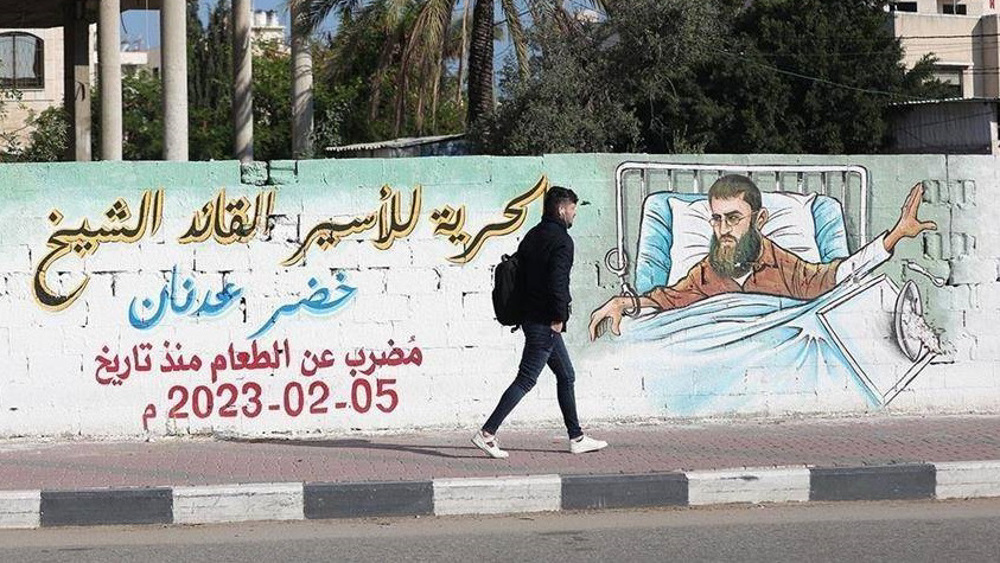

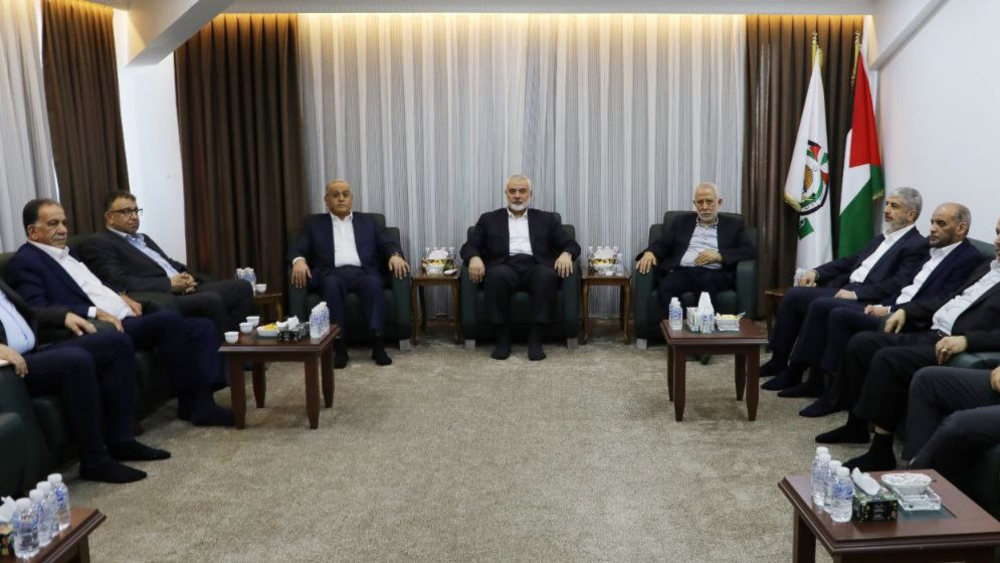
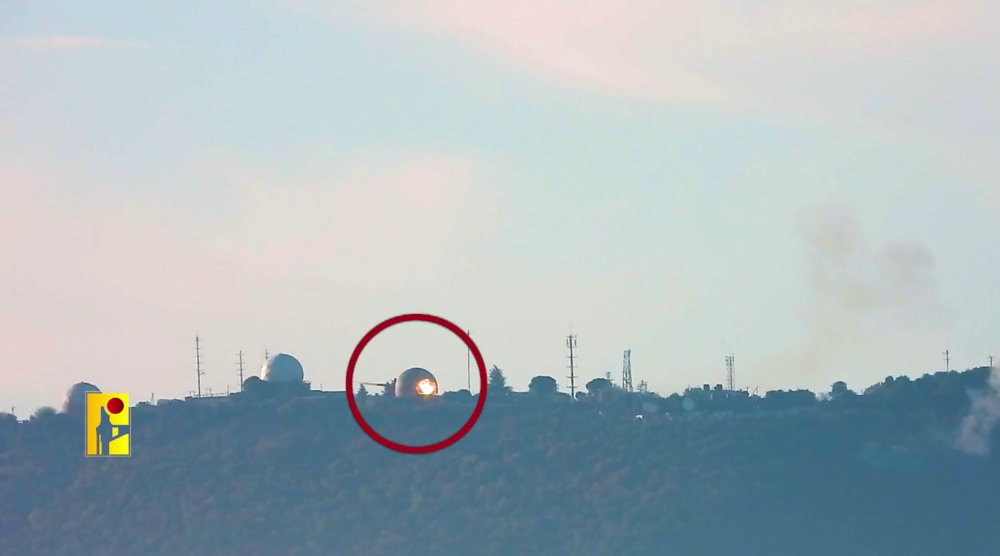



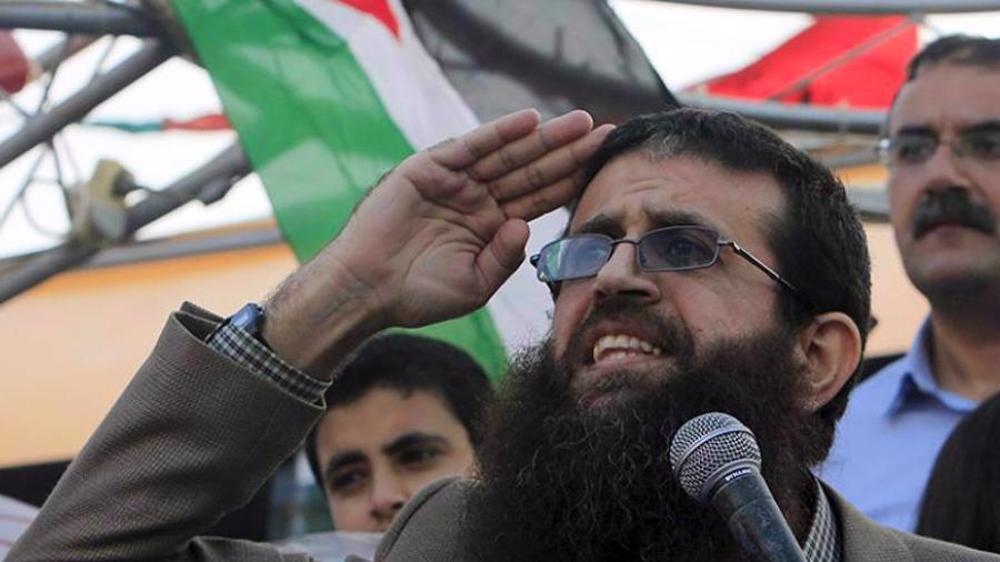
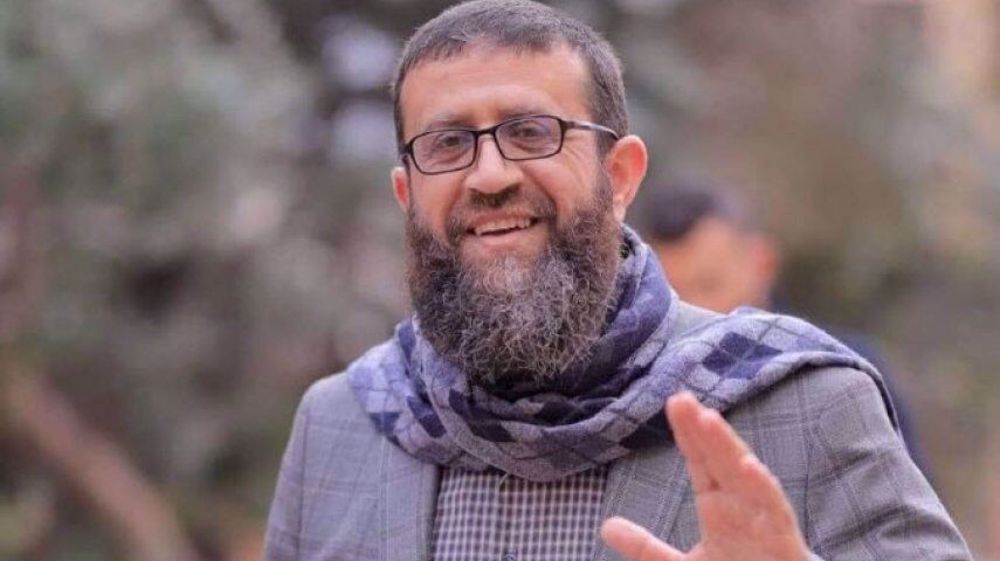
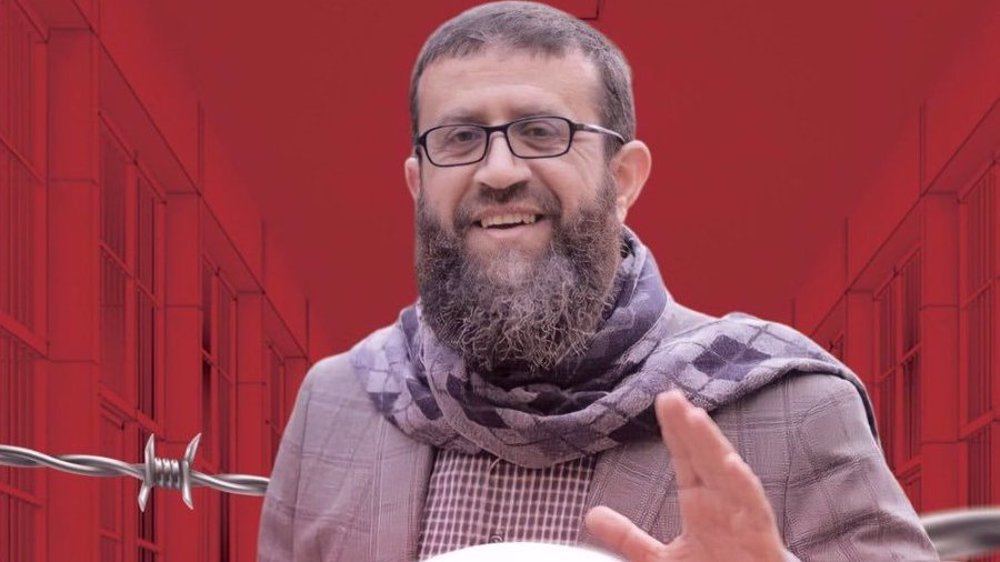
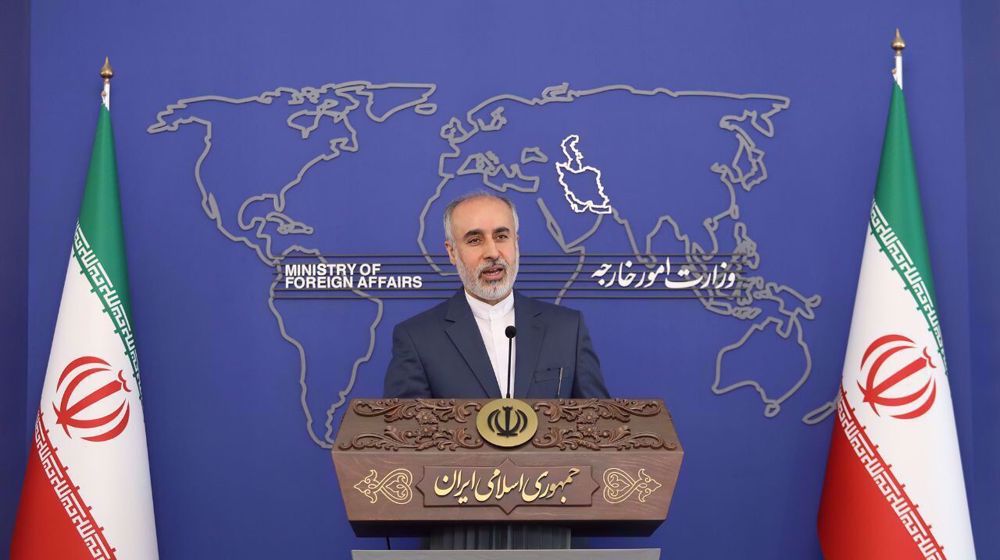
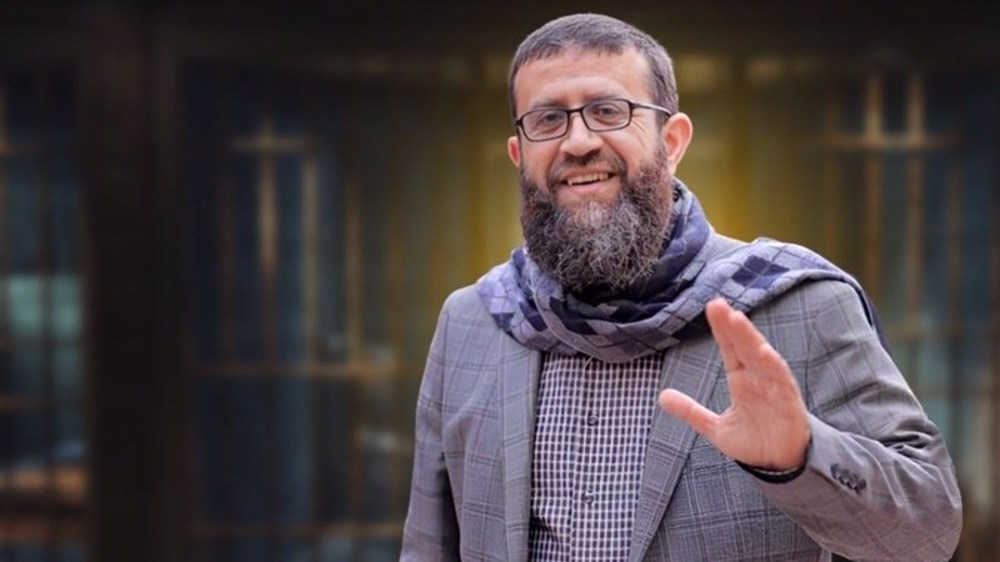

 This makes it easy to access the Press TV website
This makes it easy to access the Press TV website